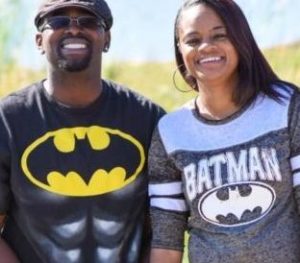Onumba.com – It wasn’t cheap, but it was all worth it.
That was how Columbus native David Justin Caldwell described his feelings after shelling out over $500 to seek out his ancestral root in Africa.
Calling it money well spent, he noted, “I saved up to do this.”
In an interview last week, Mr. Caldwell told Onumba.com all about his longstanding desire to know his African root, saying that being able to look at a map of Africa and point to a place of his origin means the whole world to him.
“You have to know where you came from to know where you are going,” said Mr. Caldwell, who is a truck driver. “You still need to have that connection, where it all started.”
“It didn’t start from slavery,” he said.
No, it didn’t. For most African-Americans, answer to the question of their African root is often hopelessly elusive since records of antebellum slavery activities were either not adequately chronicled, not stored safely or not even recorded at all.
But nowadays, thanks to the marvels of modern science and technology, African-Americans are able to trace their journey back to where it all started.
Mr. Caldwell, 35, went for it and his efforts bore good tidings. He found out in February that his ancestors came from Nigeria on his father’s side. He is of the Hausa people of Northern Nigeria, a west African country. On his mother’s side, he came from the Tikar people of Adamawa region in the central African country of Cameroon.
Asked how he feels now that he knows his African roots at a precise level, he replied, “It feels great.”
“I can now point to a place in Africa as my root. And then I can pass that on to my children.”
Ironically, Mr. Caldwell wasn’t always interested in this sort of thing. He said he really didn’t care much about Africa. But that all changed during the time he served in the United States Army from 2008 to 2012 traveling to different countries and interacting with folks from different places.
“It opened my eyes about Africa,” he said.
Before his epic epiphany, Mr. Caldwell said that his knowledge of Africa was as close to pittance as one can get, adding that his perspicacity of the continent was woeful, essentially limited to TV relief seeking informatials casting malnourished African children with flies perched on their faces and ragtag army of dusty looking “young boys carrying AK-47s.”
But Mr. Caldwell wasn’t alone. He expressed the view that most African-Americans at the time suffered from the same chronic information malnourishment often fuelled by an unhealthy mix of masochistic and dismissive lack of interest in Africa.
He blamed the frosty relationship between Africans and African-Americans on the media.
“It was sad how the media negatively portrayed Africa,” he lamented. “Because of that I had no interest in going to Africa.”
Asked if the fact that African-Americans showed little or no interest in Africa was an intentional strategy, conspiracy, if you will, to keep American Blacks ignorant about Africa, he replied:
“Most definitely.”
“I don’t think it was an accident,” he said, adding that the flame of rift between Africans and African-Americans was fanned by force of conspiracy.
“America doesn’t want us to know about Africa. They want to keep us naive, but now that I know, I feel an attachment to the continent.”
It appears mere attachment is no longer sufficient. Now, Mr. Caldwell and his wife Charonda are planning and saving up money for a jaunt to Nigeria and Cameroon with their two children.
It goes without saying Mr. Caldwell is agog about all of this, but does his wife feel his massive excitement?
“Oh yeah,” he replied. “My wife also wants to go. She is all for it.”







Great story. I am going to save up and do the same thing. That’s awsome.